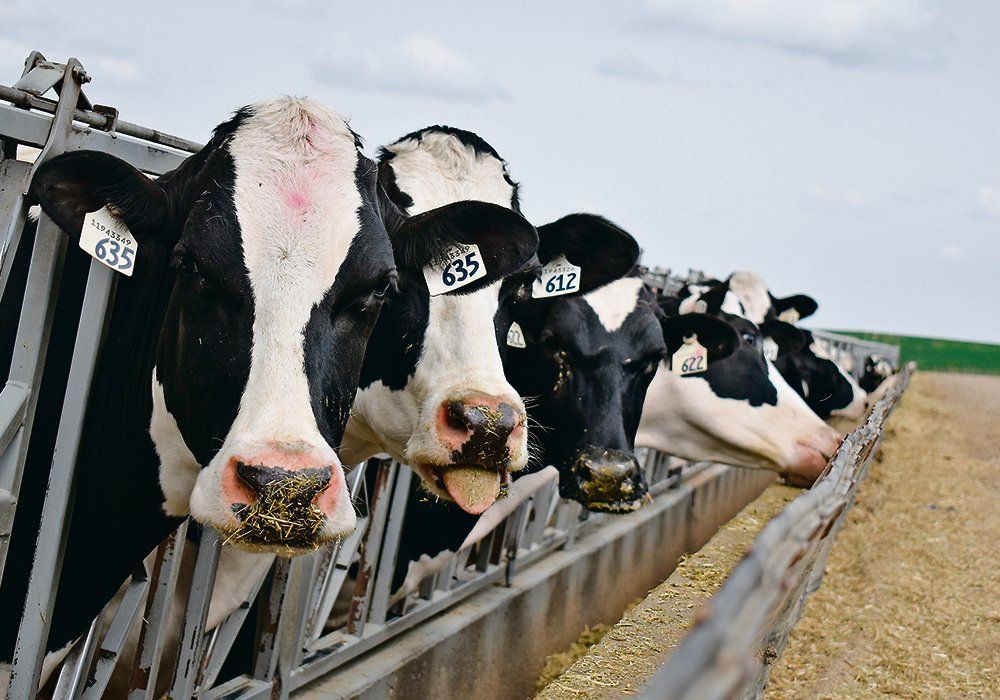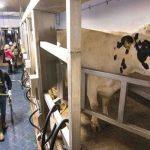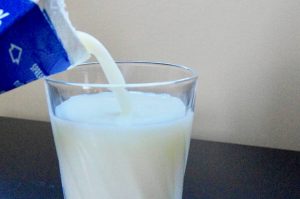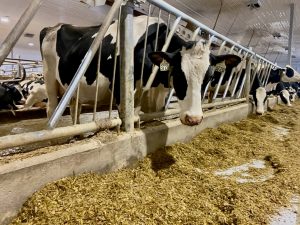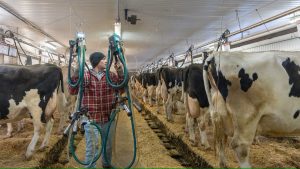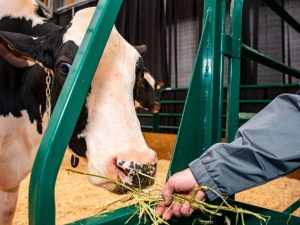
The Canola Council of Canada is conducting research on how canola meal could lower methane emissions of dairy cattle while increasing milk production.
“And what we found, which is consistent with other research projects, is that when you feed canola meal to dairy cows, the milk production increases, and typically milk quality as well,” said Brittany Dyck, a senior manager with the Canola Council of Canada. “That was observed in this study. And what we also observed was that… methane emissions were reduced as the amount of canola meal on the diet was increased.”
A Canola Council of Canada news release stated that the diets fed to the cattle consisted of 52 percent forage and 48 percent concentrate, balanced with 16 percent crude protein. For canola meal, the cattle were fed eight, 16 or 24 percent canola meal in their rations.
“There’s no kind of magic number for how much canola meal to include in a diet, or there’s certainly no reason to restrict the amount of canola meal in a dairy diet based on the performance results that we see,” Dyck said. “So cows do really well and continue to, and really, the best results were seen at that very high level.”
Gabriel de Oliveira Ribeiro, a professor at the University of Saskatchewan in the department of animal and poultry science, said canola meal has a higher level of fat than soybean meal, resulting in lower methane emissions.
He credited the amount of food being eaten for the increase in milk production.
“For dairy cows, we always want to make them eat as much as they can because dry matter intake is really well correlated with milk production,” he said.
De Oliveira Ribeiro said feeding high levels of canola meal to cattle isn’t a concern.
“If they were overfeeding proteins, that would be a concern,” de Oliveira Ribeiro said. “But when we look at their diets, the protein content of their diet is really on the range that we would want.”
The canola council report said milk production climbed steadily in linear fashion when cattle were fed rations containing eight, 16 and 24 percent canola meal.
The opposite was true for methane emissions.
“So intake was increasing, new production improved, and methane linearly decreased,” he said. “It would be interesting to have a few higher levels (of canola meal in rations) than that, to check where that stopped.”
Dyck said it is a step in the right direction for the dairy industry, which often receives scrutiny from consumers.
“The dairy industry is really innovative, and always doing a lot to really try and make sure that they are efficient, sustainable, and I think that’s really true,” Dyck said.
De Oliveira Ribeiro said he could see producers of dairy cattle adopting the findings of this study into their dairy cow rations.
“Canola meal is usually more available around here. And soybean meal is usually a very expensive product, usually (producers) have to bring that from farther distances.
“So knowing that, you can use a product or service available locally here in Western Canada that can improve your milk production, which is good for the producer, but also reduce methane production and be good for the environment at the same time.”
